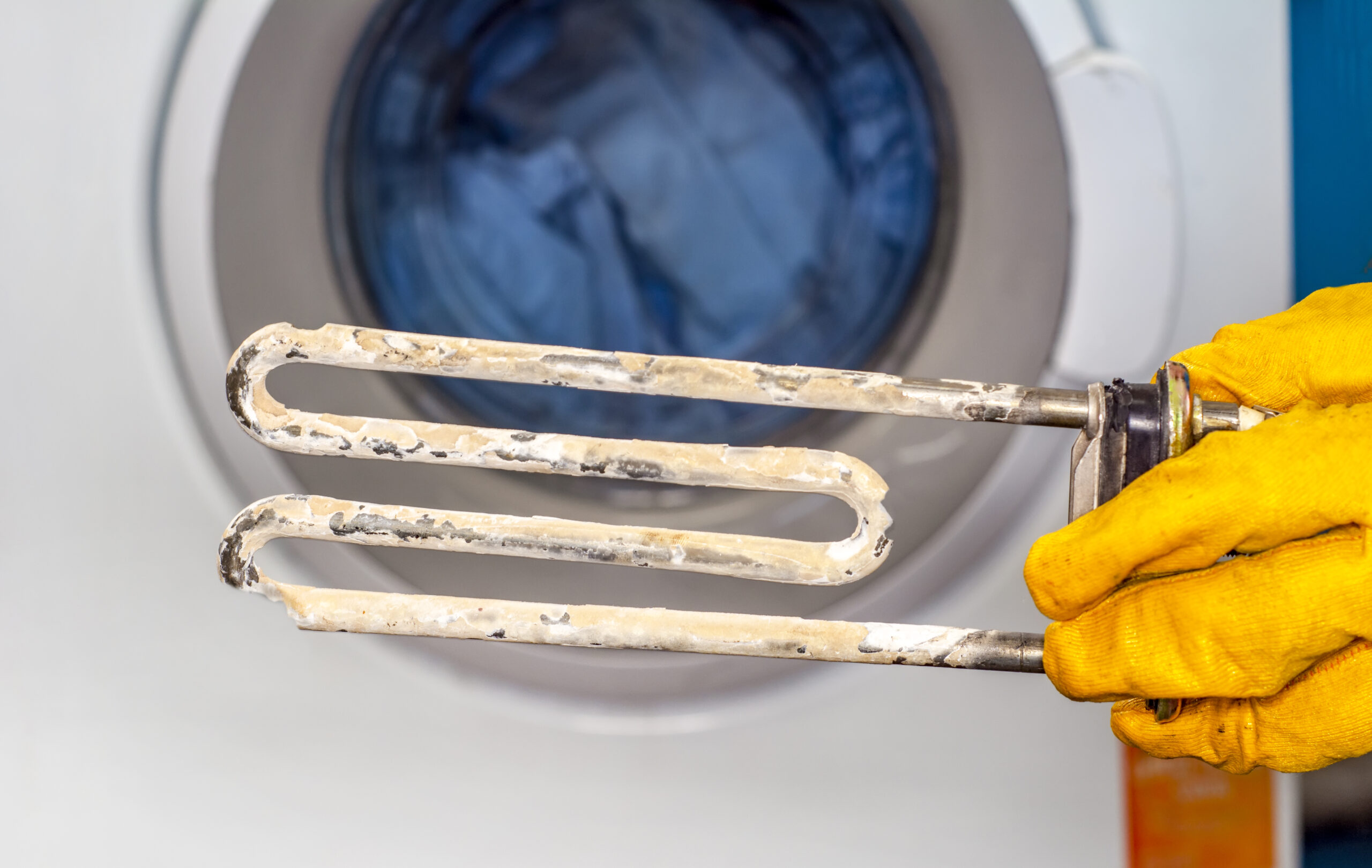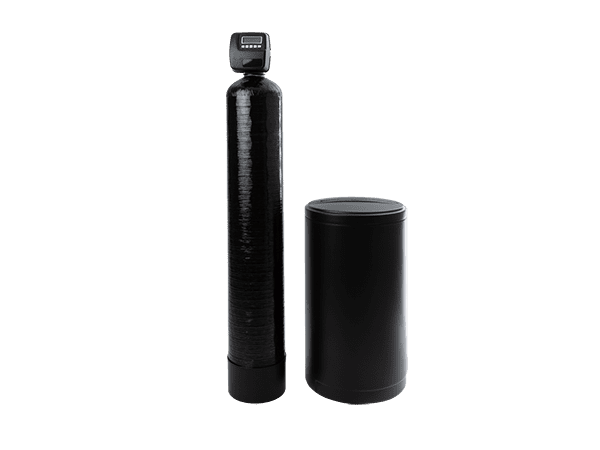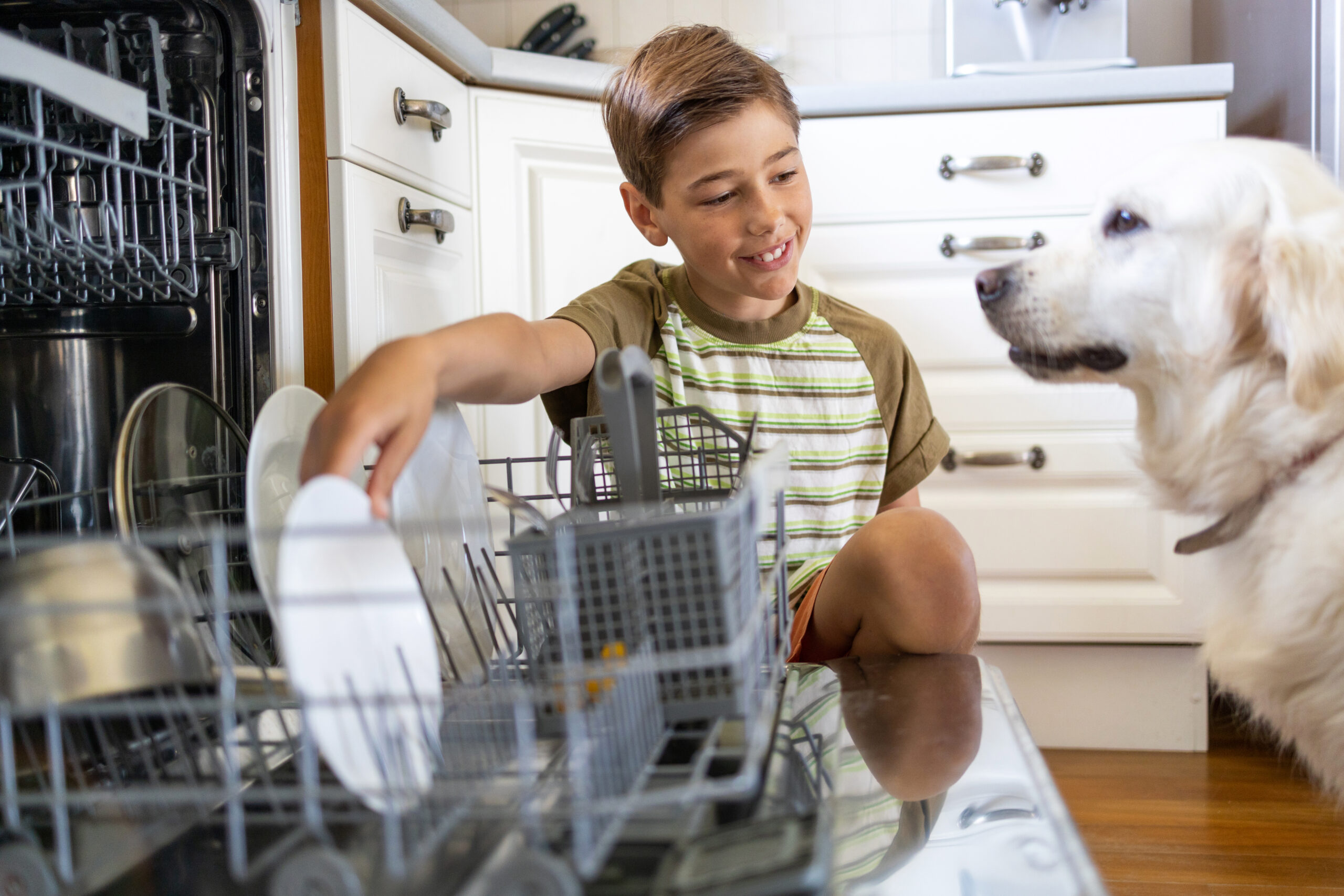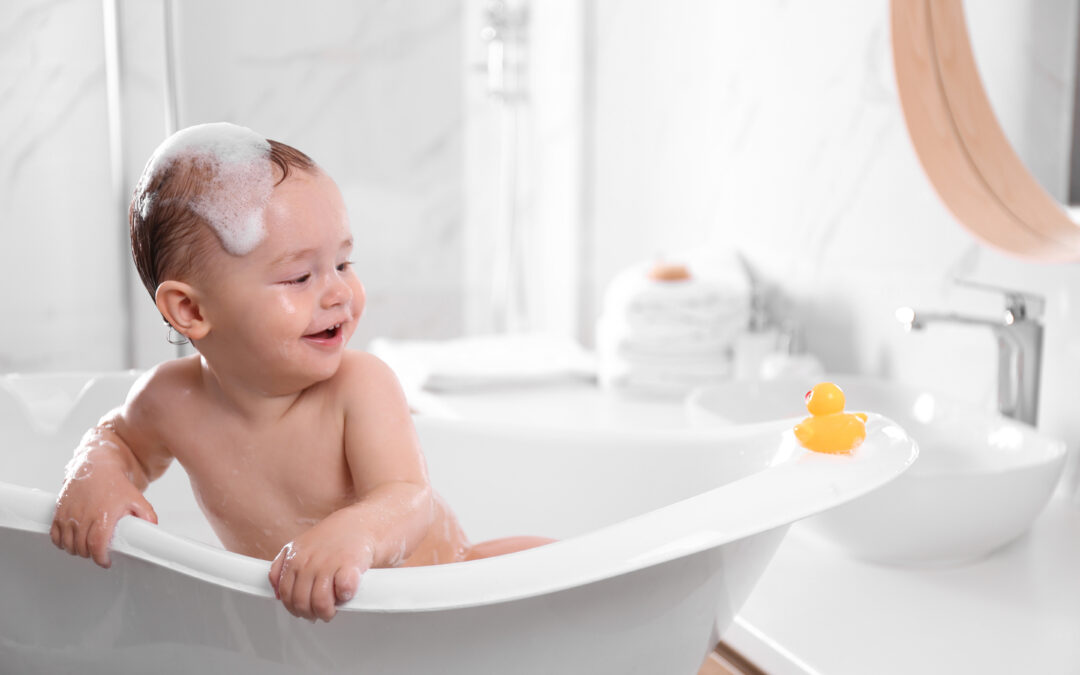Water touches every area of our lives, but not all water is created equal. At Elder's Pure Water, we know how important clean, healthy water is. We are also familiar with the specific struggles that our neighbors in the Dallas Fort Worth Westoplex area are faced with.
Common Symptoms of Hard Water
Issues caused by hard water can be a huge source of frustration. Symptoms of hard water, according to the Water Quality Assocation, can include:
- Stiff, dull laundry
- Dull spots or coating on silverware and glassware
- Excessive soap consumption & reliance on fabric softeners
- Excessive cleaning to eliminate soap scum from bath and shower surfaces
- Elevated energy expenses, potentially associated with scale accumulation in plumbing and appliances
- Mineral deposits in sinks, bathtubs, faucets, and appliances
According to the Department of Energy, over time, hard water reduces water pressure and flow. It can also significantly reduce the efficiency and lifespan of water-dependent appliances. The same type of buildup that you notice on your coffee maker will be found in larger appliances like your washing machine, water heater, and the water lines in your refrigerator.
Tough limescale buildup, annoying spots on your tableware, uncomfortable dry skin, dull, damaged hair, or the need to replace appliances early due to the effects of hard water buildup are all indicators that it’s time to start thinking about installing a water-softening system.
What is a Water Softener?
A water softener is a device designed to reduce the hardness of your water or make it soft by removing minerals like calcium and magnesium. These are the two primary minerals that make water “hard.”
Various water softening systems use different means to create softened water for your home, but the primary purpose of a water softener is to improve your water quality and protect your appliances and plumbing from the scale buildup that reduces their lifespan.
When looking for the right water softener, it’s important to understand that not all water softeners are created equal. Let’s talk about a few things you should consider about the specific needs of your home, your family, and your water supply before you make such a life-changing investment.

Your Water Supply is Distinct
Determining which residential water softener is right for you starts with knowing about your specific water supply. Not all water sources have the same characteristics, and the hardness of water can differ greatly from region to region and even from neighborhood to neighborhood.
To determine the level of hardness in water, minerals such as calcium and magnesium and measured for elevated levels. When calcium and magnesium are over-abundant in your water supply, they can wreak havoc on your appliances, plumbing, and even your skin and hair.
Testing Your Water Supply
The only guaranteed way to determine the hardness of your water is to have your water tested by a professional. They’ll measure your water in grains per gallon (GPG) or milligrams per liter (mg/L) to determine your water’s hardness level.
This is critical to understanding which water softener will have the correct capacity to effectively soften the water in your home. What works for your family member across town may not be the best solution for your family’s water supply.

Online-Only Retailers vs Reputable Water Treatment Dealers
Once the hardness of your water is determined, you’ll want to explore which water softener is the best water softener for your unique needs.
The Department of Energy says that it can be difficult for consumers to judge the best water softener system for their home because water softener systems are not widely understood products. This is why it’s so important to consider the differences between an educated and well-known dealer and an online-only provider.
Local Expertise
A knowledgeable water treatment specialist can help you consider the different options available for your home. Water is complicated and may possess many potential traits, making it impossible to employ a single, universally applicable method for creating water that is soft for your home.
Your local dealer can accurately recommend the ideal water softener size and type for your individual needs because they possess the knowledge and years of experience to do so.
They take many things into account before making a recommendation for a water softener such as your water usage, the size of your family, and the level of hardness in your water. This careful process ensures you receive the most efficient and cost-effective solution, designed to meet your individual needs. A water treatment expert can also help you detect other potential contaminants in your water.
Proper Install and Maintenance
A reliable dealer offers more than the sale of a water softener. They’ll take the time to make sure it gets installed correctly and will be able to provide you with routine maintenance and service. Online-only providers may be able to provide you with self-installation instructions, but they will not be able to provide the expertise needed to avoid common installation mistakes that ultimately affect how the system performs. Installation errors can cause potential damage to your home and even void warranties.
Quality over Quantity
A reputable dealer prioritizes their customer’s experience. They can also provide high-end water softeners from trusted brands with a proven track record of performance. This means they stand behind their products and services, often providing a warranty and ongoing support.
Area-Specific Insight
Your local water treatment dealer knows the water in the Dallas Fort Worth Westoplex area personally. More importantly, they know the specific water challenges present in your community. They’ll have the knowledge to provide a custom solution that holds up to the demands of your home and family.

Why You Need a Tailored Approach
It’s important to understand that there isn’t a one-size-fits-all solution with water softeners. Various water softening systems will have differing features, water capacities, and regeneration methods. Let’s explore a few of the potential differences a water treatment professional can help you consider.
Proper Capacity: The most important consideration to make when choosing a water softener is the capacity that will meet the water usage demands of your home and family. Using a system that is too large can lead to waste and inefficiency. A system that is too small may result in water that is minimally softened.
Your Unique Water Pressure: You’ll need to take your home’s unique water pressure into account. This will ensure that the water softener is able to function optimally, maintain an adequate flow rate, and provide properly softened water to your entire home.
Efficiency: How important is energy efficiency to you? You’ll want to think about the water and energy efficiency of the water softener system. Higher efficiency units will save you money and can reduce the environmental footprint that you make over time.
Type of System: Systems come in various types. Depending on what is allowed in your area, these might include salt-based ion exchange water softeners, salt-free conditioners, and electronic or magnetic descalers. Your personal preferences and your unique water quality will help determine the best type of water softener for you.
Regeneration: Your water softener will need to regenerate in order to remove mineral buildup. How a water softener regenerates affects water and salt usage. Your dealer can recommend the best method based on the hardness of your water and your family’s water usage patterns. Regeneration methods they’ll consider could be time-based, demand-initiated, or metered.
Cost: While it’s essential to prioritize a quality water softener, your budget is also a sensible thing to keep in mind. Your local water treatment expert can help you balance what will perform well for your home and fit into your budget.

Options for Water Softeners
There are a few types of common whole-home water softeners. Each is going to come with its own set of benefits and drawbacks that need to be considered. The best water softener for you is going to depend on multiple variables like the hardness of your water, finances, available space, and your preferences on maintenance. The following are common types of water softeners and basic information on why you would opt for or avoid each type:
Salt-Based Water Softeners (Ion Exchange Water Softener)
Salt-Based Water Softeners of water softeners use a brine tank (also known as a salt tank) to remove minerals that cause hardness effectively. They are a great choice for providing a consistent flow of softened water throughout your home.You may want to steer clear of a salt-based softener if your doctor has ordered an extremely low-sodium diet or if you live in an area with strict water usage regulations.Another thing to consider is that salt-based softeners may not be the best for well water. Some wells have high manganese and iron levels that may need to be attended to separately. A pre-filter or additional treatment may be needed before the softening stage as these types of minerals often interfere with ion exchange systems.
Salt-Free Water Systems
If you want to be or are required to be a bit more environmentally friendly, a salt-free water system may be a better option for you. These systems don’t use salt, nor do they require electricity and they require minimal upkeep.You should be aware that salt-free water conditioners may not be as effective as salt-based systems for those with exceptionally hard water. Salt-free systems also do not provide that slippery feel that so many homeowners love about conditioned water.
Twin-Tank Water Softener (Dual-Tank)
Large households with substantial water usage find dual-tank water softeners to be a sensible choice. Dual-tank water softeners provide a continuous flow of dehardnened water, even during regeneration. This is especially beneficial to those who require an uninterrupted flow of soft water.Keep in mind that twin-tank systems take up more space than other systems and are often more expensive than single-tank softeners.
Electronic or Magnetic Water Descaler
If you’re looking for something that is low-cost and salt and chemical-free, a water descaler may be a system to consider.However, it’s important to lean on the advice of your local dealer as the efficiency of these types of systems has been heavily debated. Results can vary greatly depending on your water quality. The water they provide may also not be as soft as the water that runs through other types of systems.
Portable Exchange Water Softener
If you rent and are in need of something less permanent, a portable system is a great option, because it does not require permanent installation. These types of systems do have a limited capacity and usually require an ongoing monthly rental fee.

Other Benefits of Softened Water
The main function of a water softener is to improve your water quality for everyday use. This includes water for running the dishwasher, showering, and washing laundry. However, there are some other benefits to using water that is softened.
Drinking Water: Some people prefer the taste of softened drinking water over the mineral taste that is usually associated with hard water. It’s important to note that this is a personal preference and, depending on the level of hardness, may not be detectable to everyone.
Shinier Glassware and Dishes: Conditioned water can reduce or eliminate those pesky, frustrating spots on dishes, utensils, and glassware. This can enhance the visual appeal of your table settings.
Minimized Plumbing Care: The use of soft water helps to reduce scale accumulation and mineral deposits that build up in your pipes. This reduction that a water softener helps with leads to fewer clogs, less corrosion in your plumbing, and extends the lifespan of your pipes and fixtures.
Healthier Hair and Skin: Bathing and showering in soft water can lead to softer, smoother, healthier skin and hair. Mineral buildup in your water can cause dryness that softened water helps to prevent. Your soap and shampoo will also lather and perform better when you use soft water.
Detergent and Soap Savings: Cleaning dishes and laundry effectively requires less soap and detergent when your water runs through a water softener. This helps you spend less money on cleaning products like dishwashing detergent and laundry soap over time.

Choosing the Best Softener
Choosing the best whole-house water softener system that meets the specific needs of your family, water, and home is a complex process that goes beyond browsing water softeners online.
Leaning on the experience and knowledge of a reputable dealer, getting to know your water supply, and carefully considering the various features of different types of water softeners are important steps to to getting the best water softening system possible. By taking these steps, you’ll be able to safeguard your home and appliances from the destructive effects of hard water all while enjoying all the benefits softened water has to offer.
Finding the right whole-house water softener for your family, that puts an end to your hard water woes needs to be a customized experience. Elder's Pure Water is here to help you make the process painless. We’ve been serving the Dallas Fort Worth Westoplex community for over 8 years. Give us a call today at 817-631-4967 to arrange your free water test and explore how soft water can impact your family.

